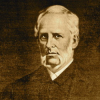Tryon Edwards

Tryon Edwards
Tryon Edwards was an American theologian, best known for compiling A Dictionary of Thoughts, a book of quotations. He published the works of Jonathan Edwardsin 1842. He also compiled and published the sixteen sermons of his great grandfather, Jonathan Edwards, on 1 Corinthians 13, the "Love Chapter", titling the book "Charity And Its Fruits; Christian love as manifested in the heart and life", which was thought by some to be the most thorough analysis of the text of 1 Corinthians...
NationalityAmerican
ProfessionTheologian
CountryUnited States of America
Preventives of evil are far better than remedies; cheaper and easier of application, and surer in result.
Any act often repeated soon forms a habit; and habit allowed, steady gains in strength, At first it may be but as a spider's web, easily broken through, but if not resisted it soon binds us with chains of steel.
Quiet and sincere sympathy is often the most welcome and efficient consolation to the afflicted. Said a wise man to one in deep sorrow, I did not come to comfort you; God only can do that; but I did come to say how deeply and tenderly I feel for you in your affliction.
He who can suppress a moments anger may prevent a day of sorrow.
Between two evils, choose neither; between two goods, choose both.
Seek for duty, and happiness will follow as the shadow comes with the sunshine.
Always have a book at hand, in the parlor, on the table, for the family; a book of condensed thought and striking anecdote, of sound maxims and truthful apothegms. It will impress on your own mind a thousand valuable suggestions, and teach your children a thousand lessons of truth and duty. Such a book is a casket of jewels for your housebold.
Every parting is a form of death, as every reunion is a type of heaven.
Some of the best lessons we ever learn we learn from our mistakes and failures. The error of the past is the wisdom of the future.
We weep over the graves of infants and the little ones taken from us by death; but an early grave may be the shortest way to heaven.
No true civilization can be expected permanently to continue which is not based on the great principles of Christianity.
Right actions in the future are the best apologies for bad actions in the past.
Prejudices are rarely overcome by argument; not being founded in reason they cannot be destroyed by logic.
Thoughts lead on to purpose, purpose leads on to actions, actions form habits, habits decide character, and character fixes our destiny.